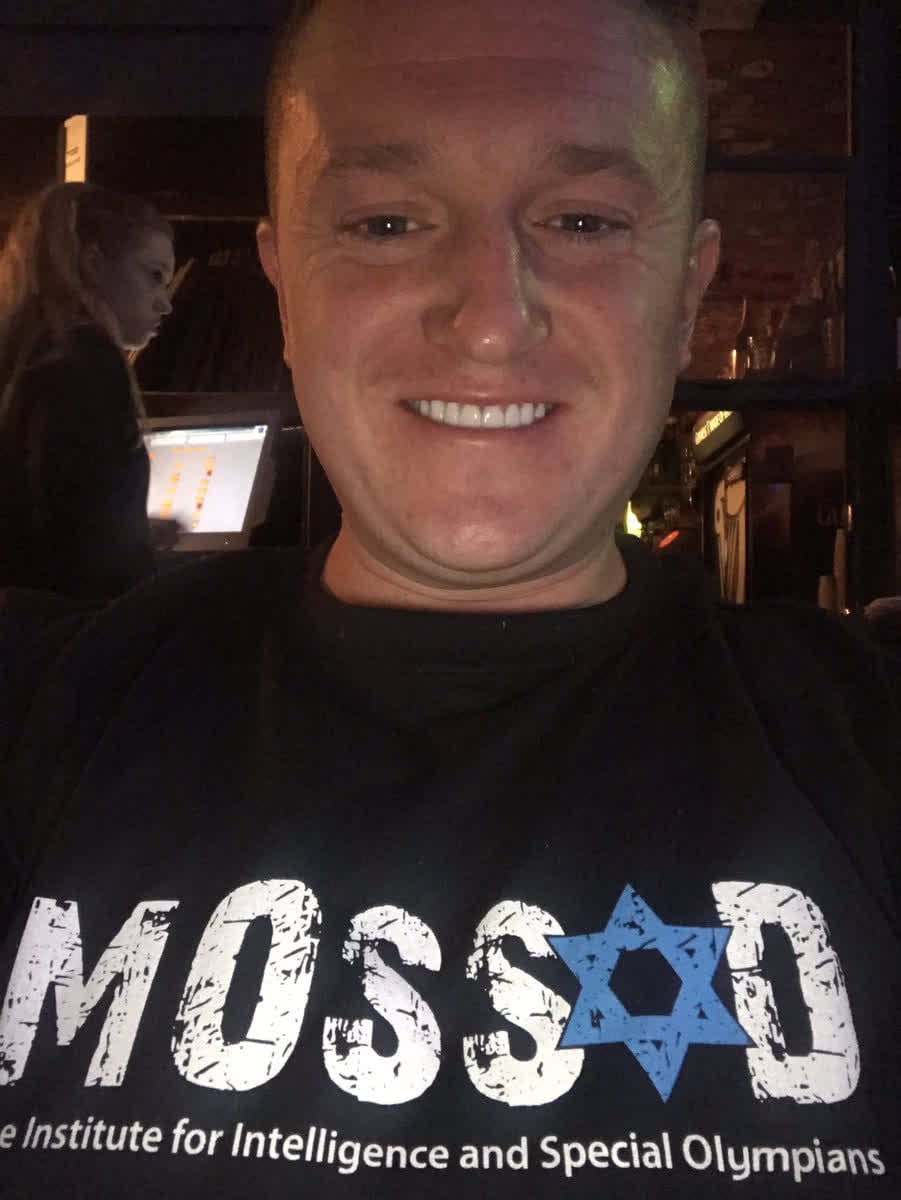Tommy Robinson - Britain’s homegrown Islamophobe, granted permission by UK judge to visit Israel while waiting for a terrorism-related verdict

By any honest reading of recent headlines, the spectacle around Tommy Robinson - the public name of Stephen Yaxley-Lennon - is not merely about one man’s legal travails. It is a story about how anti-Muslim agitation, disinformation and performative grievance can be rewarded with invitations, applause and platform - even as the courts consider whether he broke counter-terrorism powers. The recent decision by a judge to delay delivering a verdict so Robinson can travel to Israel is the latest, chilling example of how mainstream tolerance of his brand of vitriol now intersects with international theatre and state-level signalling.
𝐖𝐡𝐚𝐭 𝐡𝐞’𝐬 𝐜𝐡𝐚𝐫𝐠𝐞𝐝 𝐰𝐢𝐭𝐡 - 𝐚𝐧𝐝 𝐰𝐡𝐲 𝐭𝐡𝐞 𝐰𝐨𝐫𝐝𝐢𝐧𝐠 𝐦𝐚𝐭𝐭𝐞𝐫𝐬
The case currently before Westminster Magistrates’ Court does not allege that Robinson directly planned or executed a terror attack. Prosecutors say that, when stopped at the Channel Tunnel in July 2024, police had “reasonable grounds” under counter-terrorism powers to suspect his phone might contain information relevant to acts of terrorism - and that he then refused to disclose his phone PIN, in breach of Schedule 7 of the Terrorism Act. That refusal is the legal kernel of the charge he now faces; if convicted he faces a relatively short custodial or financial penalty on paper, but the symbolic force of a terrorism-related prosecution against a high-profile Islamophobe is seismic, mainly because of the media portrayal and far right targeting of Muslims with the portrayals that Islam condones unspeakable actions.

𝐒𝐭𝐞𝐩𝐡𝐞𝐧 𝐘𝐚𝐱𝐥𝐞𝐲-𝐋𝐞𝐧𝐧𝐨𝐧: 𝐩𝐚𝐬𝐭 𝐛𝐞𝐡𝐚𝐯𝐢𝐨𝐮𝐫 𝐚𝐧𝐝 𝐜𝐨𝐧𝐯𝐢𝐜𝐭𝐢𝐨𝐧𝐬
This is not an isolated flashpoint in a clean record. Stephen Yaxley-Lennon - who has long traded as Tommy Robinson - has a documented history of activity that courts, journalists and anti-extremism groups have tied to the stoking of racial and religious hatred. Notable entries on his record include a 2017 contempt of court conviction after he broadcast prejudicial material from inside a criminal court during an ongoing trial; a high-profile libel loss to a Syrian schoolboy, which the judge said had severe consequences for the child; and a 2013 prison term after travelling on a passport not in his own name. Those episodes are not background noise: they are the pattern of behaviour of someone who repeatedly sacrifices facts, other people’s safety and legal limits for the sake of publicity and grievance.

𝐐𝐮𝐞𝐬𝐭𝐢𝐨𝐧𝐬 𝐨𝐟 𝐧𝐚𝐭𝐢𝐨𝐧𝐚𝐥𝐢𝐭𝐲, 𝐩𝐚𝐬𝐬𝐩𝐨𝐫𝐭𝐬 𝐚𝐧𝐝 𝐭𝐫𝐚𝐯𝐞𝐥
Robinson presents as an everyman patriot, but his paper trail is messier. He is British by upbringing and activism, but through his family he has links to Ireland - and his passport status has been the subject of parliamentary questions and press scrutiny. That a man who has been repeatedly convicted of criminal offences has been able to travel internationally, and now to accept a high-profile visit to Israel while awaiting a verdict in a terrorism-related prosecution, raises plain questions about privilege, about differential treatment, and about how celebrity or outrage can create loopholes ordinary citizens do not enjoy.
Who invited him to Israel - and why it matters
The invitation itself is revealing. Robinson has been publicly invited to Israel by Amichai Chikli, the Israeli diaspora minister, and the announcement sparked condemnation from UK Jewish groups who described him as representative of “the very worst of Britain.” Whether the invitation was issued to score domestic political points in Israel, to showcase sympathy from foreign allies, or to co-opt a combative media personality for a broader culture-war narrative, the optics are clear: a man who has made a career out of demonising Muslims is being extended the hand of state-adjacent recognition. That matters because it normalises him, it internationalises his brand, and it sends a message to audiences - including far-right networks - that his anti-Muslim agitation has diplomatic currency.

A long record of stoking racial tensions and spreading falsehoods
Don’t mistake theatrical outrage for principled journalism. Over and over, Robinson’s broadcasts and posts have trafficked in falsehoods, selective editing and incendiary framing. He has repeatedly amplified bogus narratives about young Muslim men, refugees and asylum seekers - sometimes with devastating consequences for real people. Courts have rebuked him for libel and contempt; investigations and watchdogs have shown how his live streams and rallies encouraged, radicalised and mobilised street-level hostility. The definitive example is the way material like Robinson’s was later cited in relation to the radicalisation of the Finsbury Park attacker in 2017 - senior police and counter-terror officials have explicitly warned about the role of the language he and his milieu produce. That’s not “controversial” opinion; that’s an evidential link between his content and real-world harm.
Recent examples: jumping to ethnic conclusions, then being wrong
When violent incidents occur, Robinson’s instinct is predictable: insinuate an ethnic or religious motive before facts are known, then sit back as online mobs supply the violence. There have been multiple instances where he and his networks pushed the narrative that an attacker was “an immigrant” or “a Muslim,” only for the story to unravel and the perpetrator to be identified as white. Those false leaps don’t merely embarrass a pundit; they mobilise anger, provoke reprisals against innocent communities, and fuel cycles of hatred that feed onto the streets. Parliamentary inquiries into the Southport disturbances and other episodes have traced how such disinformation helped escalate communal violence.
Why Palestinian movements should care - and why everyone who cares about justice should care
This is not, and never has been, solely “a British problem.” The same toxic ecosystem that produces Robinson - the internationalised networks of anti-Muslim influencers, amplification on platforms that reward outrage, political actors who trade in fear - has very real consequences for Palestinians and for Muslim communities everywhere. When Islamophobia is normalised in Europe and beyond, it seeps into policy choices, media narratives and diplomatic calculations. A government that happily hosts or praises figures who build careers on dehumanising Muslims is a government that will look the other way when Palestinians are dehumanised on the global stage. If you care about human dignity, about due process and about resisting racist scapegoating, then the Robinson story is a warning sign: celebrity, grievance and diplomacy should never be allowed to sanitise hate.
A final note on judgment - both legal and moral

Judges will decide whether Stephen Yaxley-Lennon breached Schedule 7. That legal question must be allowed to run its course. But the moral and political verdicts - about what kind of speech our democracies should tolerate, who gets public platforms, and what responsibility hosts, foreign ministers and social networks have when they uplift agitators - are for the public. Postponing a verdict so that a man with this history can accept a warm welcome on foreign soil is an indignity to the idea that laws and communities should protect the vulnerable from hatred. It is also a stark, embarrassing reminder that the machinery of state and media too often rewards spectacle over truth, platforming over responsibility.
If you stand for justice - for the rights of minorities, of Palestinians, for the safety of Muslim communities in Britain and beyond, for a politics that rejects scapegoating - then the Robinson saga is not a sideshow. It is a test of whether our institutions will face down deliberate hate, or continue to give it the oxygen it needs to spread. The answer to that test matters much more than one man’s itinerary.
